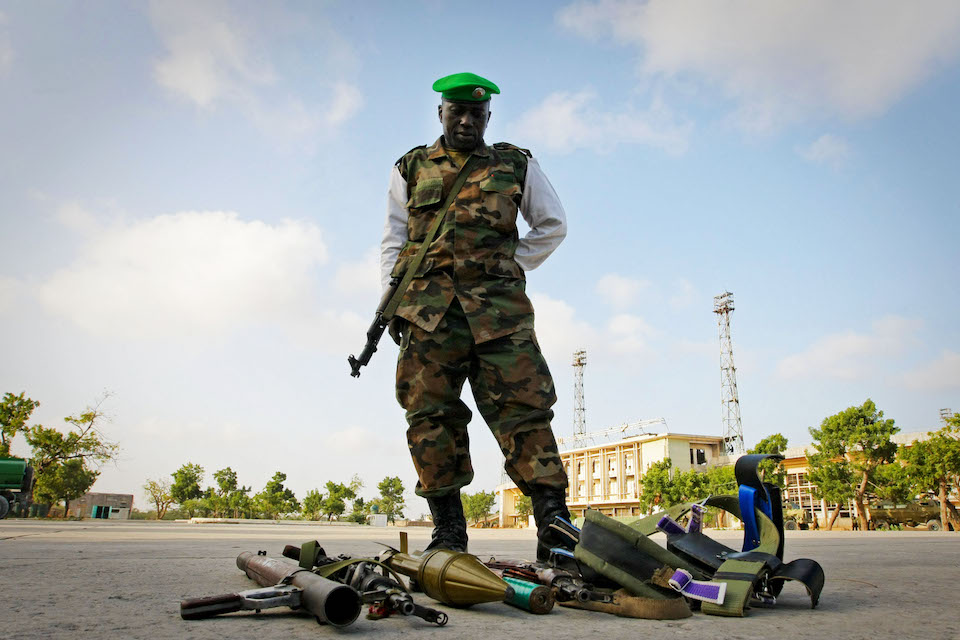Silencing the guns to 2020 and beyond
Statement by Stephen Hickey, UK Political Coordinator at the UN, at the Security Council Open Debate on Silencing the Guns in Africa: Cooperation between the UN Regional and Subregional Organisations in Maintaining International Peace and Security

Thank you Mr President. I would also like to thank the briefers for their valuable insights.
The United Kingdom welcomes Equatorial Guinea’s initiative to schedule a high-level debate on this important issue. The United Kingdom believes that it is vital that we translate the noble goal of silencing the guns into concrete initiatives that will make a tangible difference to lives of ordinary people across Africa. And with this in mind I’d like to highlight four priorities to follow up on.
First: strong and effective partnerships. These are crucial in ensuring that the sum of our efforts is greater than its parts. The United Kingdom is committed to our strategic partnership with the African Union to support peace, stability and development. In doing so, we will continue to take a holistic approach, recognising that there is a mutually reinforcing link between security and prosperity. We will also continue to support efforts to strengthen and deepen the partnership between this Council and African regional and subregional organisations. As the Secretary-General set out in his sustaining peace agenda, effective early warning and conflict prevention mechanisms require close cooperation between all relevant stakeholders. Together we can and should scan the horizon for signs of emerging conflicts and crises in Africa, sharing our insights and analysis. And we should collaborate to take meaningful action at an early stage whenever opportunities arise to de-escalate violence and advance political solutions.
Second, Mr President – and a number of Council members have referred to this today – we should give our full backing to effective preventative diplomacy, good offices and mediation as indispensable elements of regional and subregional efforts to promote peace and stability. The value of this work has been demonstrated in the African context. For example, in ECOWAS efforts to enable a peaceful transition of power in the Gambia in 2017 or IGAD support for the revitalisation of the peace process in South Sudan. This is why the United Kingdom is partnering with the African Union to support development of continental early warning capabilities in order to enhance preventative diplomacy efforts.
Third, Mr President, as Germany and Poland have already highlighted today and as the Silencing the Guns initiative rightly recognises, strengthening women’s participation is another vital element of effective conflict prevention and resolution. This is reflected in the United Kingdom’s current National Action Plan on Women, Peace and Security, which includes commitments to support the implementation of national action plans in a range of partner countries, including Nigeria, the DRC and South Sudan. The United Kingdom is also a proud member of the Friends of Femwise group, supporting the African Union’s Femwise initiative to strengthen the network of African women involved in conflict prevention and mediation. We also attach great importance to the role of civil society and community initiatives to advance women’s participation in conflict prevention and peace making. The example of Liberian Nobel Peace Prize laureate Leymah Gbowee and her fellow activists shows that when women campaigned for peace from the grassroots level, their activism can have a truly catalytic effect.
Finally, Mr President and as many other speakers have mentioned this morning, peace making and peacebuilding efforts should be complemented by a robust approach to countering the proliferation of weapons, especially small arms and light weapons. Small arms and light weapons have a role in ensuring legitimate defence and security but their misuse costs hundreds of thousands of lives every year, undermines security and development and fuels conflict crime and terrorism. This cannot be achieved without effective functioning of peace and security institutions at the national level. But it also relies on strong cross-border and regional cooperation. The United Kingdom looks forward to continuing to work with the African Union on improving management of small arms and light weapons and ammunition in Africa. This should support and complement existing work through the UN as well as other arms control treaties, conventions and regimes, including the arms trade treaty. We urge all States in the region that have not yet done so to become party to the relevant international arms control instruments, demonstrating their commitment to countering the proliferation of illicit weapons.
Mr President, the United Kingdom will remain a staunch supporter of African initiatives to foster peace and security across the African continent. We look forward to hearing from other member states in the course of today’s debate about efforts in hand to deliver progress against the roadmap for silencing the guns to 2020 and beyond. Thank you.